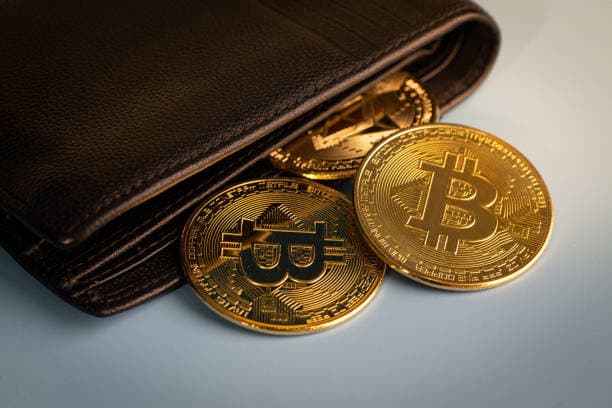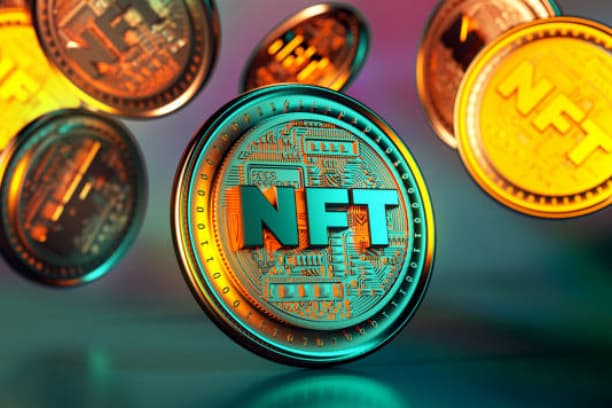How do digital currency exchanges handle security breaches?
In the world of cryptocurrency exchanges, security has always been one of the biggest concerns of users. With the rapid development of the digital currency market, security incidents such as hacking attacks and vulnerability exploits are emerging, which makes it necessary for exchanges to continuously strengthen the security protection measures of their systems. In this article, we will explore how digital currency exchanges deal with security vulnerabilities, how to protect users' assets, and analyze some effective prevention and response strategies. Let's learn how exchanges are addressing security challenges and ensuring the safety of digital assets during the trading process.

Security Challenges Facing Digital Currency Exchanges
The security of digital currency exchanges has often been the focus of industry discussions, mainly because of the large amount of user funds involved and the unimaginable consequences in the event of a hacking attack. Vulnerabilities in digital currency exchanges can come from a variety of sources, including but not limited to platform programming errors, system architecture vulnerabilities, and user-side weaknesses. The most common forms of attacks are DDoS (Distributed Denial of Service), smart contract vulnerabilities, and private key disclosure. Whenever these vulnerabilities are discovered and exploited, exchanges face great financial risks and reputation damage. Therefore, the management and response to security vulnerabilities have become an integral part of the exchange's operation.
How Exchanges Discover and Respond to Security Breaches
Digital currency exchanges utilize a variety of means to detect security vulnerabilities early. Many exchanges conduct regular security audits and hire specialized security firms to scan and test their platforms for vulnerabilities. These audits are not limited to the exchange's main website, but also cover core functional areas such as API interfaces and smart contracts. When vulnerabilities are found, exchanges will quickly work with vulnerability discoverers or professional teams to fix them and release security updates. For major vulnerabilities, some exchanges will activate the "White Hat Hacker" program, which invites security researchers to submit vulnerabilities and provide rewards, and this mode of cooperation not only improves the rate of vulnerability discovery, but also effectively reduces the risk of hacker attacks.
Technical Means to Enhance Exchange Security
In addition to fixing vulnerabilities in a timely manner, exchanges employ a variety of technical measures to enhance platform security. The most common ones include enhanced encryption, two-step verification (2FA) and cold wallet storage. Digital currency exchanges encrypt all user logins and transactions to ensure that data is not stolen during transmission. To further enhance security, many exchanges require users to activate two-step verification, i.e., in addition to a password, a mobile phone verification code is also required, so that even if the account password is stolen, it is still difficult for hackers to log in to the user's account. Cold wallet technology is also an important measure to protect user funds. Cold wallet refers to storing most of the funds in a device that does not have an Internet connection, so that even if the exchange is attacked, the user's assets will remain safe.
How to assess the security of an exchange
When choosing a cryptocurrency exchange, how should users judge the security of the platform? One can check the historical security record of the exchange to find out whether it has experienced any major security incidents in the past and assess its ability to respond to such incidents. You can check whether the exchange has adequate security measures, such as two-step verification and cold wallet support. Some exchanges publish regular security reports to publicize their security operation status, which is an important reference index for users. Finally, users can refer to the security evaluation of exchanges by some third-party security evaluation platforms, so that they can comprehensively judge the security of exchanges from multiple perspectives.
Exchange Liability and Transparency in Response to Security Breaches
In addition to technical means, digital currency exchanges also need to assume certain legal responsibilities for handling security breaches. When a security breach occurs in an exchange and results in the loss of user funds, whether the exchange can be held liable for compensation is an important issue. Under different countries' legal frameworks, exchanges may face different areas of liability. For example, in some jurisdictions, exchanges may be required to offer compensation packages and compensate injured users, while in other jurisdictions, exchanges may be required to follow more stringent regulatory requirements to ensure the safety of users' funds. Whether an exchange has a clear and transparent contingency plan and compensation scheme is also an important factor that users should consider when choosing an exchange.

Case Study: Exchanges That Successfully Tackle Vulnerabilities
Looking back at some of the cases of exchanges that have successfully dealt with security breaches, the response of several exchanges is worth mentioning. For example, Binance suffered a large-scale security breach in 2018, when hackers successfully accessed user accounts and stole a large amount of funds. After the incident, Binance quickly activated its emergency response plan and repaired the breach in just a few hours, while openly and transparently informing users of the situation. In the end, the exchange used its own funds to compensate affected users and strengthened the platform's security measures. Such quick response and transparency not only helped restore user trust, but also set a good example for the entire cryptocurrency industry in terms of security response.
How to Keep Your Digital Assets Safe
For cryptocurrency investors, in addition to relying on the security measures of exchanges, they should also actively improve the security of their assets. Protect your private keys and never store them in Internet-connected devices. Use cold wallets to store funds that you won't need for long periods of time to minimize the risk of an attack on your assets. Regularly check the movement of your funds on exchanges and stay alert to suspicious activity so that problems can be detected and dealt with earlier. Finally, choosing an exchange with strong security can also reduce the risk of asset theft to a certain extent.
Frequently Asked Questions Q&A
1. Will the Exchange compensate users for their losses in the event of a security breach?
This depends on the exchange's policies and local laws. Some exchanges offer full or partial compensation in the event of a breach that results in a loss of funds, but not all exchanges have this commitment. Therefore, when choosing an exchange, it is important to be aware of its compensation terms.
2. How do I know if the Exchange has fixed the security vulnerability?
Most exchanges regularly publish security updates and publicize details of vulnerability fixes. Users can learn about the platform's security operation status through the exchange's announcements or official community channels.
3. What security measures are in place for cryptocurrency exchanges?
Cryptocurrency exchanges generally employ multiple security measures, including encryption technology, two-step verification (2FA), cold wallet storage, risk monitoring, etc., to protect users' funds.














